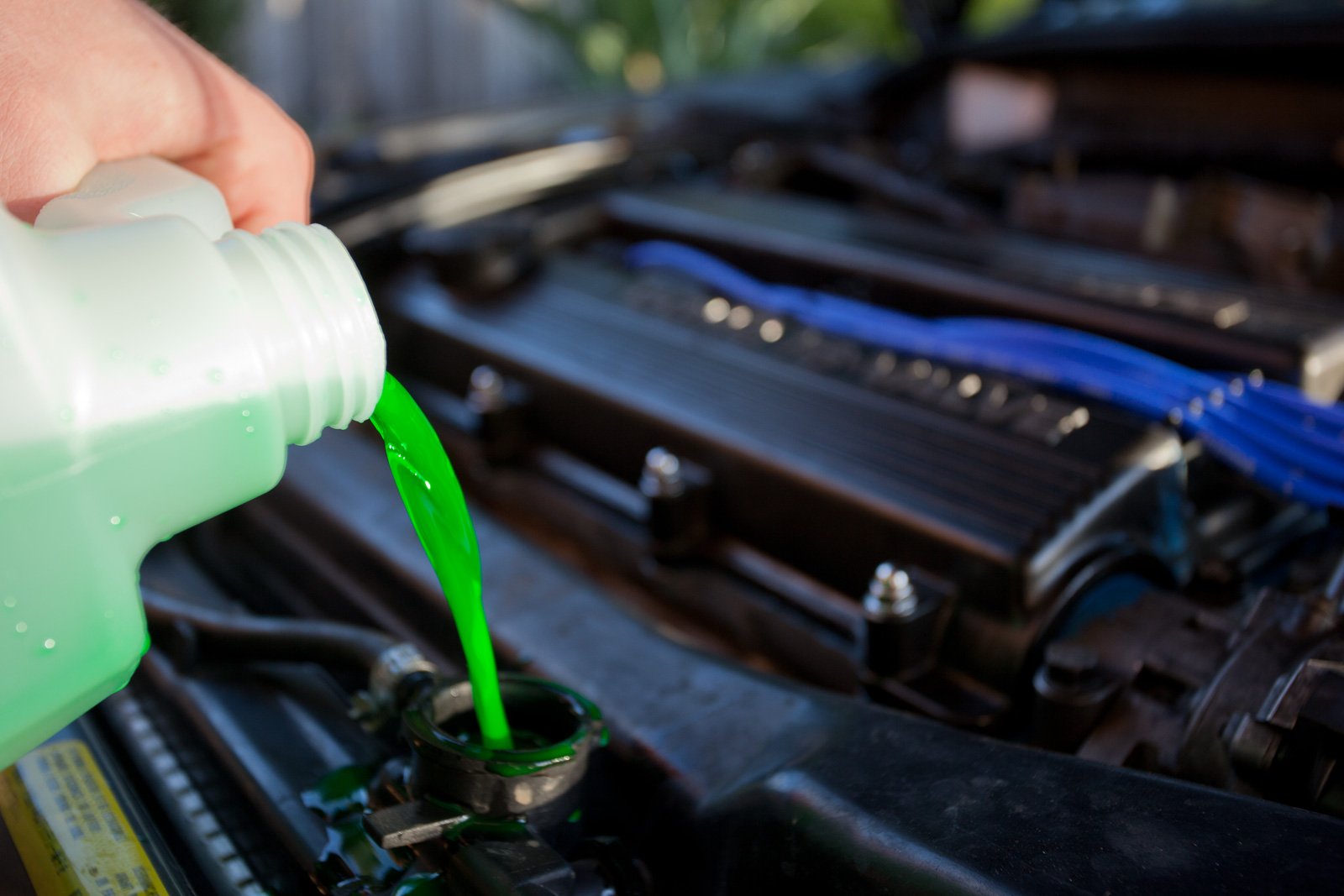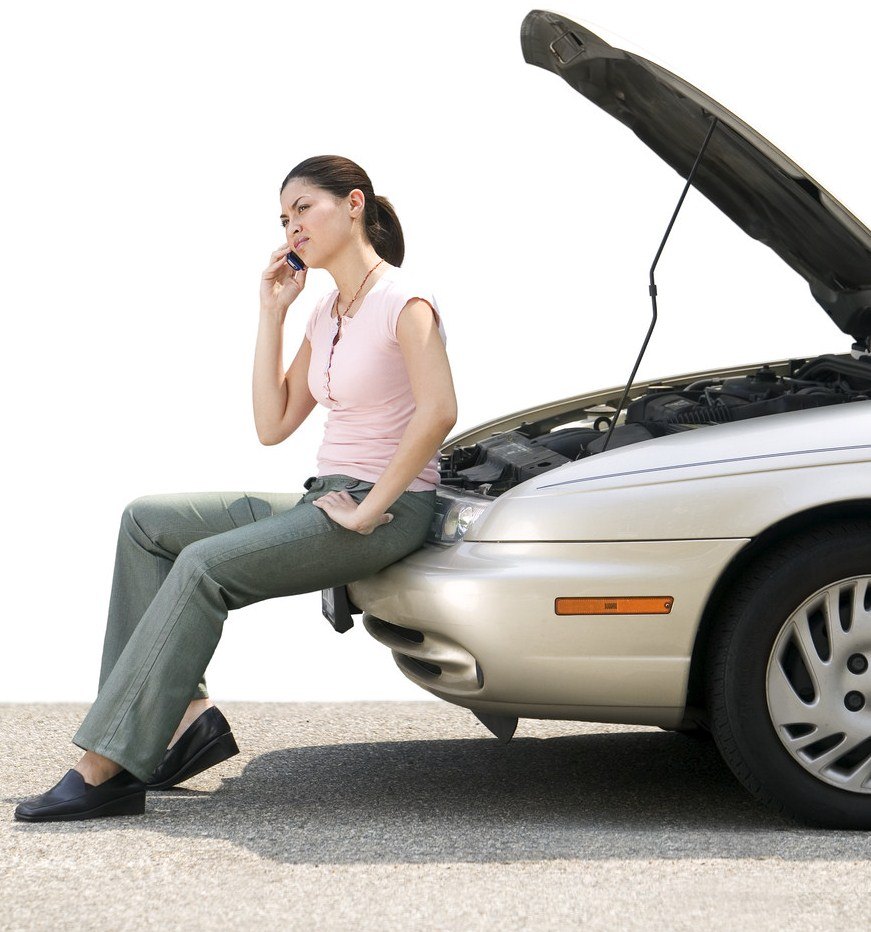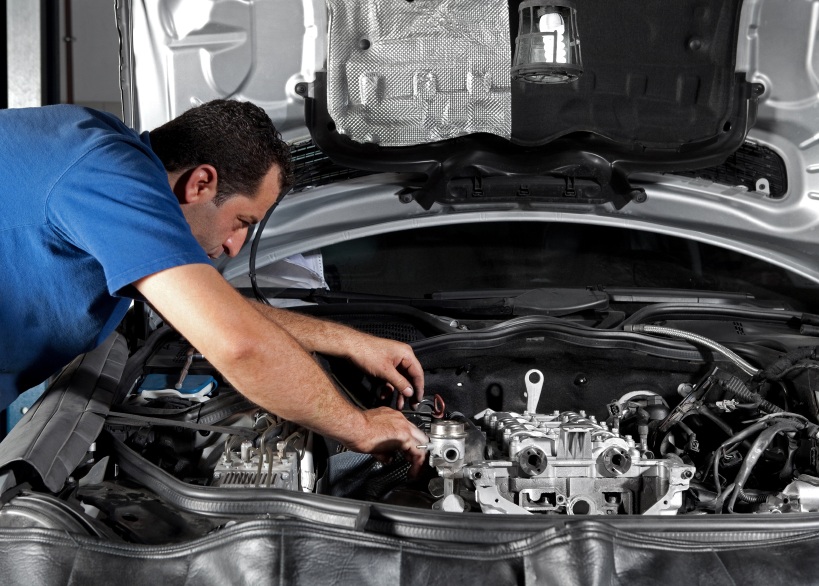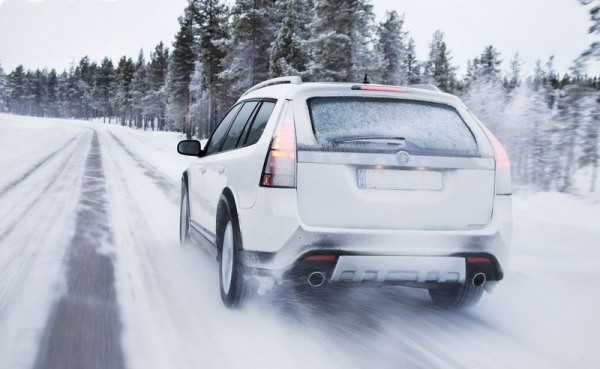
5 Maintenance Tips to Keep Your Vehicle Healthy Longer and Save You Money We all know we should be doing it… Preventative vehicle maintenance, that is. Keeping our vehicles healthy before problems arise is the most surefire way to keep your vehicle running smoothly, safely, and for many years to come. But, when there is so much maintenance to be done, it is tough to know what all to keep up with! That’s why we have compiled a list of some of the most important maintenance you should be keeping your vehicle up-to-date with, and why. Don’t forget to print yourself a 10% off maintenance coupon before coming in to see us! 1. Check and Replace Your Fluids Even if you don’t ever learn how to change your fluids, you should learn how to check those fluid levels. In some cases, you can see the tank level directly, but most have gauges or dipsticks you can pull out to check current levels against a notch that indicates optimal levels. Even i ... read more

3 Teen Driving Safety Tips It’s back to school time, and for those of us who have new young drivers, that means our teens are going to be on the road more often driving themselves to and from school every day. Read and share these tips with your teen drivers to remind them just how important it is to be a safe driver, both for themselves and for every other driver on the road. 1. Know the Speed Limits… …Especially in and around the high school. Of course, it is always important to follow the speed limits, but in and around the school there are more young drivers than anywhere else, and higher risk of accidents. Following the speed limits around the school zone, and being extra careful in school parking lots will lessen the chances that your teen will get into a fender bender on their way to or from school. Things to ask your teen: Do you know the speed limit on all of the roads between home and school? Do you know the speed li ... read more

Preventative Maintenance Guide Pt. 2 6. Replace Your Cabin Air Filter This is probably one of the easiest things you can do to keep your car comfortable and feeling like new inside. Most vehicles make the cabin air filter easily accessible and replacing it is as easy as opening a box. You can get a fitting filter at any auto parts store. It may not be critical to the performance of your vehicle, but it is a simple way to keep the inside of your car and all of your drives much more pleasant. 7. Replace Your Engine Air Filter Getting to the engine air filter may be a little trickier depending on the vehicle you have, but replacing it regularly is important. Your owner’s manual will give you a mileage estimate for how frequently you should replace your engine air filter, but this will be drastically different for each vehicle depending on the environment it is driven in. Heavy pollen and dust in the Sierra’s can clog a filter pretty quickly, we’ve l ... read more

Preventative Maintenance Guide Pt. 1 What’s the difference between preventative maintenance and a repair? Preventative maintenance happens on your terms, and usually costs just a fraction of what a repair might be. Here are some simple things you can do today to keep your car healthy and happy! 1. Read Your Owner’s Manual While this may sound too simple to benefit from, you’d be surprised what you may find within that mysterious book inside of your glove compartment. When it comes to preventative maintenance, your owner’s manual will tell you what needs to be done and when you need to do it. 2. Learn to Check Your Fluids Coolant, oil, power steering, wiper fluid, etc. There is a lot going on under the hood of your car and much of it is dependent on these fluids. The levels of most of them can be seen either by their clear holding container under the hood, with a dipstick, or a gauge in the dash. Your owner’s manual can help you find each ... read more

Engine Knocking What is engine knocking and how do you fix it? If you are regularly noticing a “pinging” or a “knocking” sound when you are driving in your vehicle, there is a good chance this noise is coming from the engine. Engine knocking is usually caused by an uneven burning of fuel throughout the cylinders in your engine which then throws off the timing of the motor. In a healthy vehicle, fuel burns throughout each cylinder in perfect harmony and propels your car forward. However, if something throws off this timing, fuel can be ignited at the wrong time, therefore causing a shockwave that causes that knocking sound inside of your motor. This type of malfunction can lead to serious problems for the engine. How can I fix it? Fuel can burn at strange rates throughout your engine for a variety of reasons. Fortunately, most of these reasons are fairly easy to fix. If the problem persists and you continue to hear knocking, howeve ... read more

Signs You Need New Tires How are your tires doing? The worst time to figure out you need new tires is when you’re on the side of the road digging for your spare. Here are some helpful tips to make sure you’re tires are healthy. 1. The Penny Test Turn a penny upside down so that Mr. Lincoln’s head is pointing towards the tire. Now place the penny between the tread on the tire. If you can still see Lincoln’s head, it’s time for some new tires. 2. Cracks in the Sidewall This is a simple check that you should do on your vehicle fairly regularly. Simply look around the sidewalls all 4 tires for cracks, cuts, or scrapes. While some imperfections here may be fine, others could be a sign that the tire is old or damaged. This simple check could prevent a slow leak or a frightening blow-out. 3. Bulges or Blisters A sure sign that a tire needs to be replaced is a visible bulge anywhere along the outside of it. Bulges or blist ... read more

Top 4 Winter Car Care Tips 4 Winter Car Care Tips Well, it seems like Winter is back! Is your car ready? Check out these 4 tips to keep you safe and prepared for whatever the weather may bring. Tire Pressure: Did you know… 1) Tires lose 1 pound of pressure for 10 degrees Fahrenheit the temperature drops. 2) An underinflated tire will not “bite” through snow down to the pavement as well as one at pressure. Just like hydroplaning on water, an under-inflated tire has a much higher chance of conforming to the snow/slush/water you are driving over rather than pushing through it and grabbing the pavement below. Also, be sure to put the valve caps back on when you’re done. If moisture enters the valve, it can freeze and crack the core, thus letting air out. Check your battery: So you may need our help on this one but it’s certainly worth it. The severely low temps we see here in Truckee throughout the Winter can r ... read more
12 Resolutions for Your Car This year (and hopefully years following!), make sure you are routinely taking steps to keep your car happy and healthy so it continues to be safe and reliable for your family and you can avoid possible breakdowns or costly repairs down the road. Follow these 12 simple steps to make your car last a lifetime and be less likely to run across emergency repairs. 1. Check tire pressure often Tire pressure will fluctuate when temperature fluctuates, so it’s good to check it throughout the year. Plus, if you have a leak you will be the first to know about it. 2. Have your brakes checked when you get your tires rotated Warn brakes can be hazardous to your health and the health of other drivers, plus they make your car very unsafe to drive. Have your brakes checked any time you notice unusual behavior as well. 3. Visibility is important For the safety of you and other drivers around you, it is important ... read more
Why Coolant Matters Why Your Radiator and Engine Cooling System are Vital The moving parts of your engine create huge amount of friction, and where there is friction, there is heat. To reduce the damage to your engine and vehicle by this heat, your car’s cooling system sends coolant (a mix of water and antifreeze) through the engine chambers to absorb all that extra heat, which the radiator removes to allow the coolant to continue circulating. This process keeps temperatures at safe levels, and it protects your engine from damage. A well-maintained cooling system is key to keeping your car running newer, stronger and longer. But why does coolant need changing? Your vehicle’s cooling system works a lot harder than you might think. In perfect unison, it has to keep the incredibly high temperatures of the engine from overheating, direct some of that heat to the heater core which is used to warm the interior of your vehicle, and remove the excess th ... read more